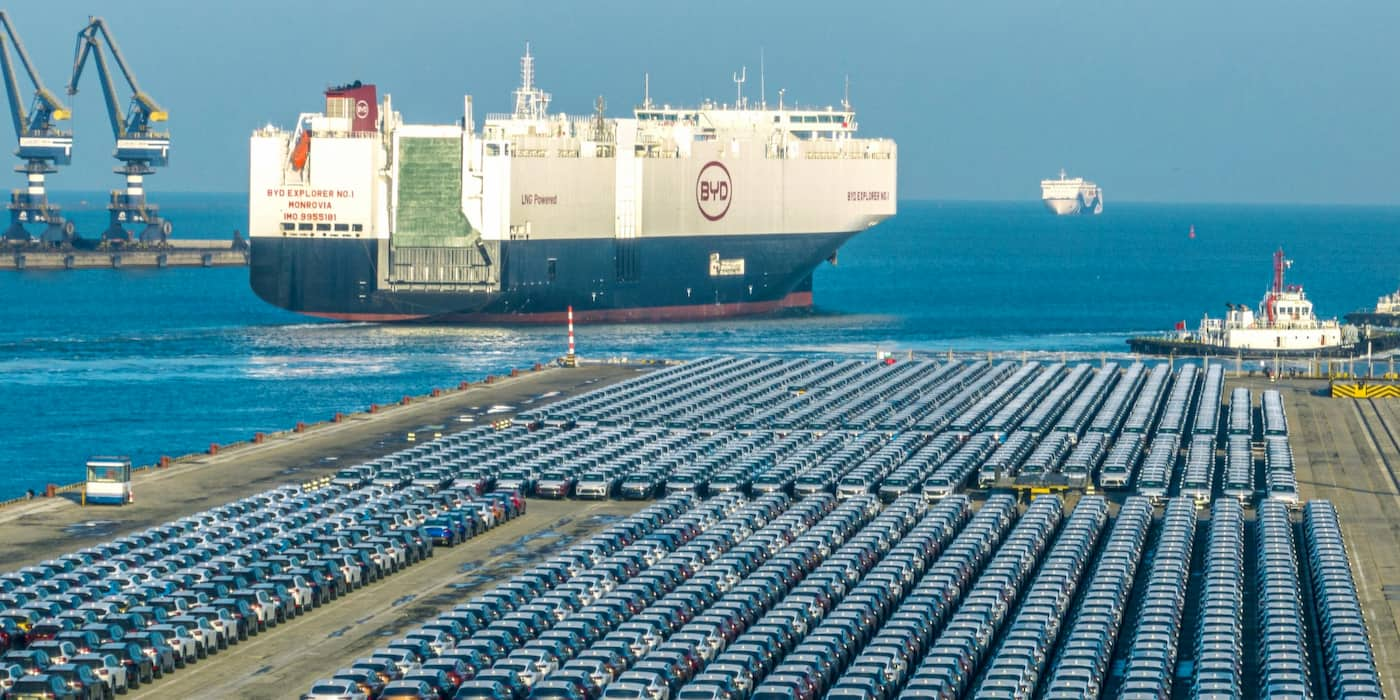
It’s official: The European Union is moving ahead with increased tariffs on Chinese-made EVs to as much as 45.3% – in an effort to save its auto industry from total demise. Question is, will it even matter to a powerhouse like BYD?
After more than a year of investigations into what it suspects are unfair subsidies on Chinese-built electric vehicles, the EU’s Official Journal announced that new tariffs will take effect immediately, Reuters reports. The duties differ depending on the automaker, with 17% for BYD, 18.8% for Geely, and 35.3% for state-owned SAIC, in addition to the EU’s 10% vehicle import duty. Other EV manufacturers in China, including BMW and Volkswagen, would be subject to a 20.7% duty, while Tesla is subject to a duty of 7.8
The duties took effect provisionally in July, with negotiations expected to continue, meaning the EU could lift the duties if another solution is found to the ongoing trade dispute between the EU and China.
The European Commission says that the tariffs are needed to counter what it says are unfair subsidies – massive government aid in the form of grants, financing, and cheap access to land and raw materials that enables Chinese automakers to undercut rivals in the EU on price, both consuming a large chunk of the market share and putting European jobs at risk. China’s “spare production capacity of 3 million EVs per year is twice the size of the EU market,” Reuters reports. Since the US and Canada apply 100% tariffs on EVs coming from China, Europe has been the most obvious choice for Chinese expansion.
Subsidized solar panels have also wiped out European solar producers, and European governments are hoping the auto industry can avoid the same fate. Just as an aside, European carmakers haven’t been much in favor of the increased tariffs, since Chinese-made cars coming from BMW, Volkswagen, and Mercedes-Benz, for example, will be hit with tariffs as well.
Beijing has called the higher duties and protectionist and unfair, and look to be playing tit for tat. Earlier this month, the Commerce Ministry announced provisional tariffs of up to 39% on French and European brandies after the EU voted in favor of EV tariffs. Of course, Chinese automakers such as BYD and Chery are looking to avoid tariffs altogether and build cars in Europe, with BYD building a plant in Hungary and Chery looking to build cars via a joint venture in Spain.
It’s not that clear what impact the new tariffs will have on prices for European consumers, since Chinese automakers can make cars so cheaply that they could absorb the costs in the form of lower profits rather than raising prices.
As for BYD, EuroNews cites that five of its six models would still earn a profit in Europe despite a 30% tariff, according to Rhodium Group calculations. While BYD is keeping its exact sales target on the down low, BYD president Stella Li said in an interview with German newspaper Frankfurter Allgemeine Zeitung that the company’s success is a direct result of China’s commitment to electrification, and all of the political bickering over tariffs only creates confusion for consumers. “We are now hearing that many companies are going back to combustion engine cars. But if the whole world switches to electric cars in five years, they will not be ready for it because they have not invested,” she said in the interview. “In the long term, that is very dangerous. It will kill these car manufacturers.”
FTC: We use income earning auto affiliate links. More.



Comments